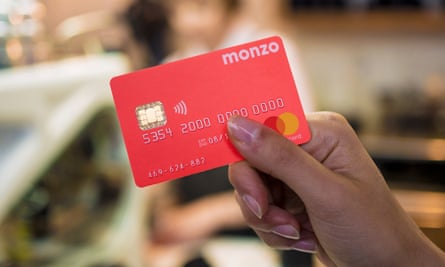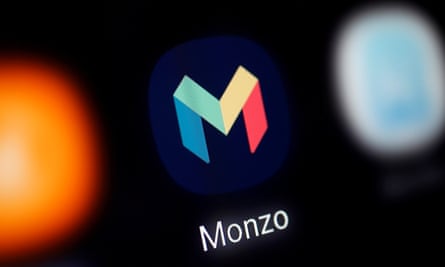Tom Blomfield was not prepared for the stress that the Covid-19 crisis would unleash on the banking sector and his own mental health. The 35-year-old Monzo founder was already struggling to meet the daily demands of running a digital bank that had grown to nearly 5 million customers and had become a success story for Britain’s fintech sector.
Constant worries about wooing investors, generating revenue, and increasingly critical news coverage that the burgeoning bank was attracting, were clearly taking their toll.
“I was stressed, definitely. I suffered anxiety that impacted my sleep. Did I border on depression at times? I don’t know,” Blomfield told the Guardian. The banking boss turned to mindfulness apps and tried three different therapists, but nothing changed. “The issue was switching off.”
He said the stereotype of superhuman tech bosses could not be further from the truth. “There’s this myth of the superhero founder who sleeps four hours a night and reads 500 books a year and is up hiking before dawn kind of garbage. If it’s true, I’ve never met that person.”
He eventually called it quits: first stepping down as chief executive to take over as a part-time president in May 2020, before leaving his unicorn startup for good last week. “The last couple of years, I didn’t feel like myself. I felt like it was just about keeping Monzo going.”
Blomfield joins a growing list of high-profile banking bosses opening up about their mental health, including former Virgin Money boss Jayne-Anne Gadhia who has been candid about postnatal depression and battling suicidal thoughts due to intense work pressure prompted by the company’s 2014 stock market debut.
Former Lloyds Banking Group chief executive António Horta-Osório was one of the first to speak publicly in 2011, after taking temporary leave and checking himself into the Priory for exhaustion and insomnia, as he tried to turn the bank around after the 2008 financial crisis.
Blomfield followed the case closely. “I thought that was a real show of strength.” But he worries the language around mental health is still too binary. “You are either a person who is well, or you are a person who is mentally ill, and mentally ill sounds scary and stigmatised … That really stops people talking about stress and anxiety and depression, which are just unbelievably common.”

Since launching in 2015, Monzo has gone from a scrappy startup luring millennials with a sleek app and hot pink coral pre-paid debit card, to a fully licensed bank worth more than £1bn with £3bn-plus in deposits.
Monzo’s rapid success not only catapulted Blomfield into the Sunday Times Rich List – with a paper fortune of roughly £100m – but forced him into a tightly controlled cycle of meetings with investors, engineers, designers, new hires, journalists and regulators. “It would be packed with meetings from pretty much 9am till 7pm,” he said. “Down to the nearest five minutes, my time was planned.”
Calls with US investors ate into his evenings, sometimes running until 2am. Monzo has now raised about £435m, but for every clinched investment, another 50 meetings ended in rejection. “You’re spending hundreds and hundreds of hours talking to investors,” Blomfield explained.
Worst was the red phone kept in his room at night in case of work emergencies such as major technical outages or the odd financial crisis. “Every couple of months the red phone rings, and you know it’s going to ruin the rest of your week,” he said.
As Monzo grew, its honeymoon period with the press also came to an end. Headlines focused on widening losses – which stood at £114m last year – unexplained decisions to freeze accounts, mis-storing of customer pins, and U-turns on premium accounts.
Blomfield also had to deal with his old boss-turned-banking rival Anne Boden documenting unflattering accounts of his time as Starling bank’s chief technology officer in her new book, including embarrassing dinner parties and investor meetings.
He was sent drafts in advance but Blomfield said he did not read them. “A lot of what was written was not true. Honestly, just factually, not true,” Blomfield said, adding that retaliating would only fuel further headlines. “There’s another side of the story that may get told eventually, but I just don’t think it’s significant enough to care that much about.” Boden declined to comment.

Blomfield’s job became more taxing after Covid-19 reached the UK, and the financial sector reeled from the impact. At Monzo, revenues halved overnight, and investors pulled funding days before documents were to be signed. “On the Friday that London went into lockdown, three separate funds phoned me up and said: ‘Look, this investment’s not going ahead.’”
Blomfield was soon working seven days a week, fielding calls from government officials consulting on Covid support schemes, and UK regulators trying to determine how much strain UK banks could take. “There were a few weeks at the start of the crisis when genuinely people didn’t know if the financial system was going to collapse or not,” Blomfield said.
Monzo would later end up cutting 66 jobs, temporary furloughing roughly 175 workers, closing its Las Vegas office and securing top-up funding that cut its £2bn valuation by 40% to £1.2bn.
While the banking sector found its footing the crisis ended up being the push that Blomfield needed to hand control to Monzo’s new chief executive, TS Anil. Seeing Monzo recover and surpass pre-coronavirus revenues without his constant guidance this past year, helped Blomfield let go entirely.
“It’s definitely the right time for me to move on. And I feel so much lighter now. I’m just enjoying the small things in life,” he said.
“I feel like myself again.”
